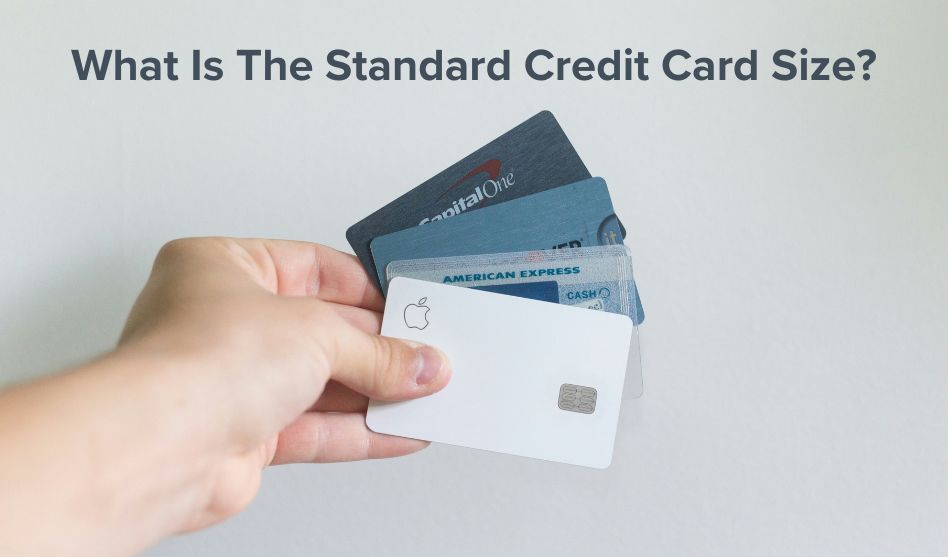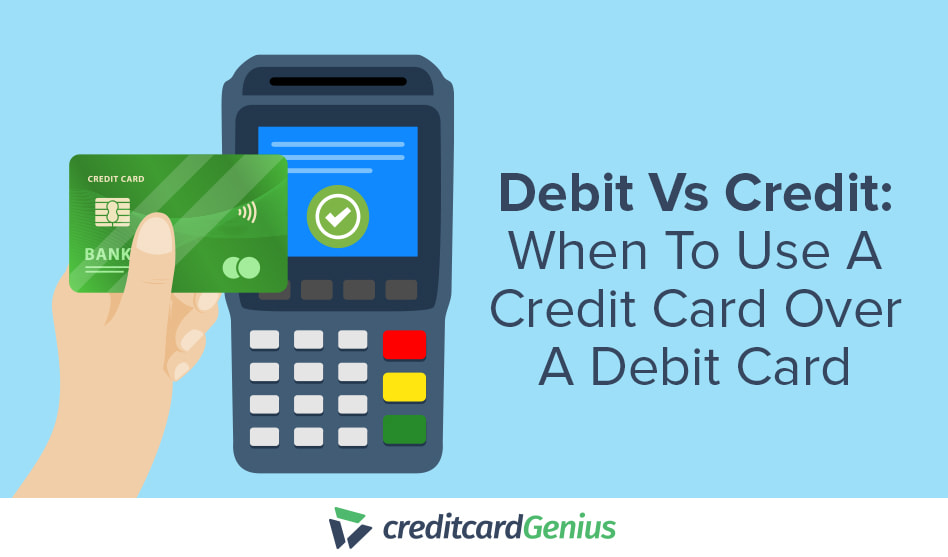Spoiler alert: We’re huge fans of credit cards. After all, you can earn fantastic rewards, purchase protection and insurance coverage, and get unique discounts and perks. Debit cards? Not so much.
That’s not to say debit cards aren’t a good option. There are a few instances when reaching for a debit card makes better financial sense.
Here, we’ll dive into the pros and cons of each, so you can confidently pay with the best option for your situation.
Never miss an amazing deal again + get our bonus 250+ page eBook for FREE. Join 50,000 other Canadians who receive our weekly newsletter – learn more.
Debit cards vs. credit cards
Here’s a summary of how debit and credit cards compare:
| Debit cards | Credit cards |
|---|---|
| * No risk of spending more money than you have * Don’t charge interest on purchases * Might earn limited rewards * Charges limited or no fees | * Potential to earn rewards * Includes insurance coverage * May come with discount opportunities * Provides flexible financing * Required for booking hotels and rental cars * Secure form of payment * Responsible use can improve your credit score |
If it seems like credit cards have more going for them than debit cards do, you’re right. That said, your personal finances and goals are the biggest determinants of which card type you should use.
Pros and cons of debit cards vs. credit cards
Before we jump into which type of card is best for your situation, drawing up a pros and cons list of each can really help.
Credit cards
First of all, it's important to note that these benefits only apply if you’re paying off your credit card regularly, and that the exact benefits and rewards vary between individual credit cards.
Pros:
- Earns rewards points or miles: You can redeem these
- for cash back, hotels, flights, merchandise, charity donations, and more.
- Includes insurance: Possible types include travel insurance (trip delay or cancellation), mobile device coverage, and purchase protection.
- Annual travel credits: These are offered with premium travel credit cards and can sometimes offset a card’s annual fee.
- Airport lounge access: Some travel cards include this perk, with a few offering free lounge membership and others just a few lounge passes.
- Travel perks: Outside of the ones mentioned above, other perks include free checked bags and/or companion vouchers, which give you a cheaper ticket for someone flying with you.
- Roadside assistance: Credit card roadside assistance plans typically include services such as fuel delivery, flat tire repair, towing, and battery jump-starts.
- Provides flexible funding: They allow you to charge a big purchase and pay it back in small amounts over time, perhaps even with a specified installment plan.
- Improves your credit score: This only works if you make your payments on time and in full, but it can significantly impact your credit score.
- Makes it easy to purchase items: Most physical and online merchants around the world accept credit cards, so you don't need to worry about having cash on hand.
- Allows you to reserve a hotel room or book a rental car: In fact, credit cards are usually required to hold a hotel room or rental car when booking, making them invaluable for travel.
- Works outside of Canada: Some cards even waive foreign transaction fees, making it even easier to pay for purchases when travelling abroad.
Cons:
- May have an annual fee: These annual fees can offset your earnings.
- Interest charges: Interest can significantly add to your debt if you get behind on payments.
- May damage your credit score: If you miss payments or carry a high balance, your credit score can be significantly affected.
- Easy to overspend: It can be very easy to overspend since it’s so easy to use credit cards for almost any purchase, whether in person or online.
- Fees and high balances can spiral into debt: Especially if the card has a high interest rate or significant late fees, the debt spiral can quickly get out of control.
- Has high interest rates: Compared to other products, such as personal loans or lines of credit, credit card interest rates are very high.
Debit cards
Although you can use debit cards in much the same way as credit cards, there are significant differences.
Pros:
- Prevents you from going into debt: Since you can’t spend more than what’s in your account, you can't fall into debt.
- Easy to apply for: Debit cards themselves don't need any application, but you can apply either online or in person to open the bank account they're associated with.
- No annual fees: You may pay a monthly fee for the bank account (although there are many free accounts), but the debit card itself incurs no additional fees.
- Doesn't have credit score or income requirements: You must apply for the bank account it's linked with, but debit cards have no requirements at all.
Cons:
- Doesn’t build your credit score: Since you're not borrowing any funds, your debit activity isn't reported to credit bureaus.
- Might charge you overdraft fees: Overdraft fees are charged if you spend more than what’s in your account.
- Doesn’t reimburse you for fraudulent charges: If your card is lost or stolen, you're (usually) on the hook for any fraudulent activity, unlike with credit cards.
- Can’t use them to finance large purchases: Debit cards don't have financing options, so if you need to buy something expensive, you must already have the necessary funds in your account.
- Might have spending limits: Some accounts have daily spending limits for the associated debit card, which can be inconvenient when making a large purchase.
When to use a credit card vs. debit card
It’s hard to overstate this, but there’s no one-size-fits-all answer for which is better. Instead, it makes more sense to consider when a credit card or debit card is best for your personal finances.
For example, a credit card is an excellent option for people who have no problem making regular on-time payments and won’t max out their card. A credit card might make sense if you plan to use it for everyday purchases to make them more convenient, or if you want to buy a large-ticket item.
Not only will you avoid having to carry cash and make change, but your everyday purchases can earn you valuable rewards. Those large-ticket items can earn even more rewards.
Travelling soon? If you pay for your flight, hotel, or rental car with a credit card that has trip insurance, you could have protection against lost baggage, delayed flights, or cancelled hotels. Plus, premium credit cards offer extra perks, such as reserved seating or concierge services.
You may wonder if there are any instances where a debit card is the better option. There are! If you’re trying to pay down your existing debt, switching to a debit card is a game-changer.
Anyone who has struggled to pay off a credit card knows how difficult it is to make a payment only to keep using it and see the balance continue to climb. By switching to a debit card, you essentially freeze the amount of debt you have, so you can gradually chip away at it.
Debit cards are also a fantastic choice for people who are new to managing their finances. They are more convenient than carrying cash, and some debit cards earn interest on your balance or offer simple rewards. If you’re not looking for complicated rewards programs and don’t mind minor earnings, a debit card is a solid option.
FAQ
Is it better to use a debit or credit card?
Credit cards are a better option, but only if you use them responsibly. Otherwise, they can be a disadvantage. You can earn rewards, get valuable insurance coverage, and have access to an easy form of financing at a moment’s notice.
What are the disadvantages of a debit card?
Users don’t have fraud or purchase protection with a debit card. You’re also missing out on rewards, and responsible use doesn’t get reported to credit monitoring bureaus, which means a debit card won’t help your credit score.
Is it worse to lose a credit or debit card?
Losing either is bad, but losing your debit card is worse since there are fewer protections in place to stop others from directly accessing your funds. It’s much easier to prevent fraudulent activity on a stolen credit card.
creditcardGenius is the only tool that compares 126+ features of 228 Canadian credit cards using math-based ratings and rankings that respond to your needs, instantly. Take our quiz and see which of Canada's 228 cards is for you.









































Comments
Leave a comment
Required fields are marked with *. Your email address will not be published.
Showing 5 comments